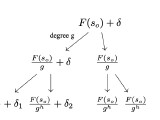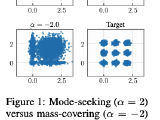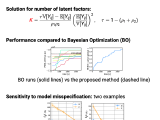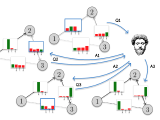When do GFlowNets Learn the Right Distribution?
Analysis of the limitations and stability of GFlowNets under balance violations, showing how these affect accuracy. We introduce a novel metric for assessing correctness, improving evaluation beyond existing protocols.
ICLR 2025 (Spotlight, ~top 5% 🎉)







